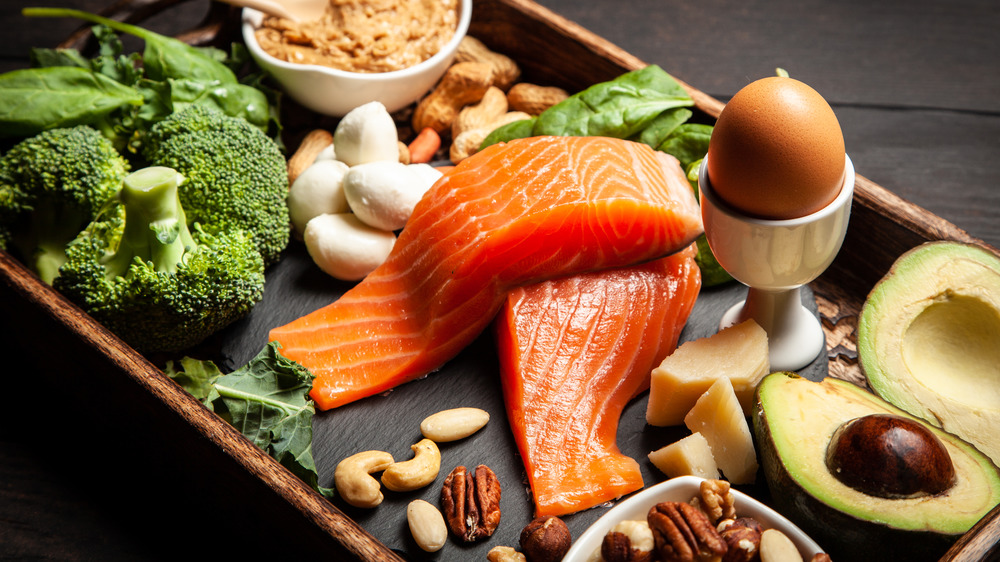The Truth About 'Speed Keto'
The keto trend has trickled from celebrity circles to everyday Americans looking to burn fat, and burn it fast. That being said, nutritionists and dietetic professionals are withholding their approval of the new 'speed keto' approach.
Ketogenic diets consist of packing four parts fat to one part protein and one carb per meal (via Diet Doc). An online article in Health explains the purpose of the ketogenic (or keto) diet is to condition the body to use target the body's fat for fuel. In contrast, Healthline describes ketosis as a difficult state for the body to build muscle. Recently, Dr. Harlan Kilstein created the Speed Keto diet, permitting intermittent fasting, while restricting participants to only one keto-approved meal each day.
This may not be such a great idea, and nutrition experts are sounding the dietetic alarm.
Why speed keto could be unsafe
Despite the many success stories featured on the Speed Keto website, experts are concerned about this new experimental wave. Primarily, people are questioning the validity of the program due to its developer not possessing certified knowledge of health or nutrition.
Healthline quotes Tony Castillo, RDN, nutrition consultant for RSP Nutrition, detailing the unhealthy effect of ketosis on the body. "This means the weight loss you see is most likely water weight or even muscle weight, not true fat loss," Castillo said. He is concerned a OMPD (one meal per day) program may be ideal for some, yet biologically ineffective for others — specifically, those struggling with binge eating disorders (via Health).
If losing weight and defining muscle is a health goal, Cynthia Thurlow, NP and Castillo agree a safer, more traditional approach would be to consider nutritional needs, biology, and past eating history to create a long-term diet and fitness plan.
Overall, losing weight is a journey that may be best started with medical and nutritional advice from experienced professionals. While the speed keto program may be affordable and seemingly easy, there will certainly be other cost-effective — and healthier — alternatives available.


